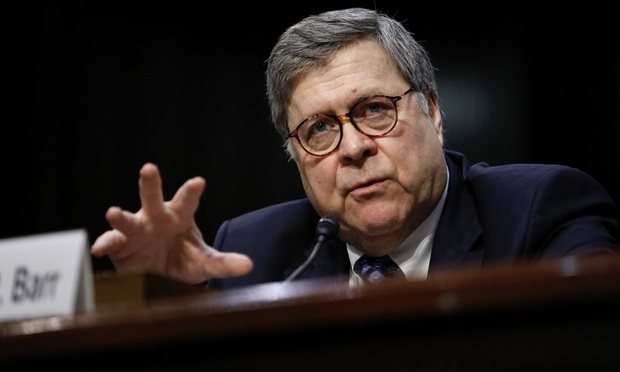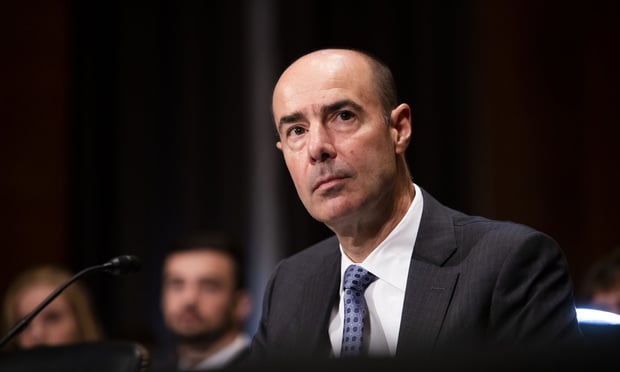Senators voted, 55-44, to curtail debate on Barr’s nomination, with the vote falling largely along party lines. Three Democrats—Sens. Joe Manchin of West Virginia, Kyrsten Sinema of Arizona, and Doug Jones of Alabama—voted to advance Barr’s nomination to a final floor vote. One Republican—Sen. Rand Paul of Kentucky—opposed Barr, while Sen. Cory Booker, D-New Jersey, did not vote.
A final confirmation on Barr’s nomination could come as early as Wednesday or Thursday. If Barr—currently of counsel at Kirkland & Ellis—is confirmed, it’ll be his second time leading the Justice Department. He was previously U.S. attorney general during the George H.W. Bush administration. Before that, Barr had also served as a deputy attorney general and headed the Justice Department’s Office of Legal Counsel.
Barr is all but guaranteed to be confirmed, thanks to the Senate’s GOP majority.
But the nominee has still faced intense Democratic opposition, thanks in part to a legal memo Barr sent to Justice Department officials and members of Trump’s personal legal team in June 2018 about Special Counsel Robert Mueller III’s probe into Russian interference in the 2016 U.S. election. In the memo, Barr described a possible obstruction of justice inquiry into the president as “fatally misconceived.” Sen. Dianne Feinstein, D-California, the top Democrat on the Senate Judiciary Committee, has described Barr’s letter as “disqualifying.”


 William Barr appears for his confirmation hearing. Credit: Diego M. Radzinschi / NLJ
William Barr appears for his confirmation hearing. Credit: Diego M. Radzinschi / NLJ






